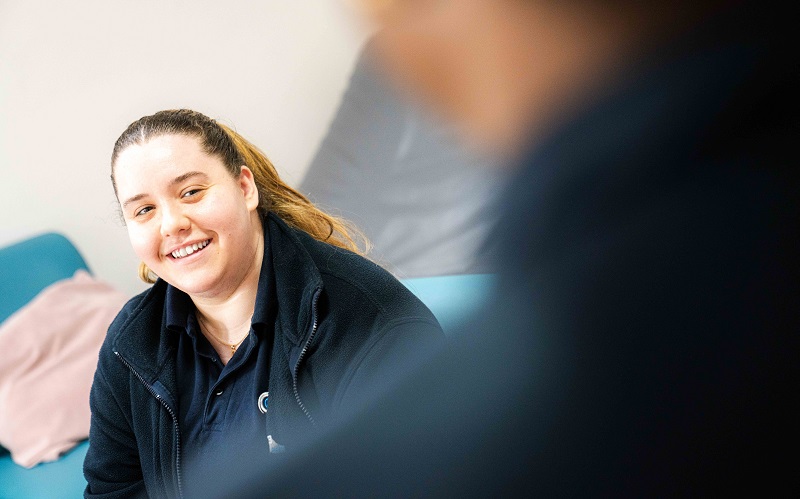
Gender: Female
Age: 18+
Beds: 18
The service is structured so that there are two distinct areas in the ward aligned with the care pathway; pre-engagement and engagement. Following admission, a 12 week assessment period is undertaken to establish needs and determine the appropriate treatment pathway. Upon completion of the 12 weeks’ assessment, a clear pathway will be formulated with the service user and discussed in their first CPA (Care Programme Approach) meeting.
New Dawn Ward structure is underpinned by the principles of the Enabling Environment which offers structured opportunities to give individuals the meaningful interventions to address and deal with their presentations in a safe environment. All treatment and interventions are geared towards preparing an individual for a positive discharge. The discharge planning process ensures that the service user is able to access ongoing support and advice from the local Community Mental Health Team as required.
Therapy programme
Dialectical Behaviour Therapy (DBT) is the main programme of therapy used on New Dawn Ward. The care pathway is structured in phases which include a comprehensive clinical, psychometric assessment and formulation within 4-6 weeks of admission. In order to measure psychological outcomes, a symptom checklist – Revised (SCL-r) is completed for all service users on admission and then every three months to monitor changes in symptoms and associated distress.
DBT informed pathway Features two cycles of skills training, weekly 1:1 therapy, ad hoc skills coaching and 1:1 crisis management therapy. Service users who are motivated and show commitment to DBT will undertake the full programme.
Adapted DBT pathway We recognise that standard DBT is not suitable for everyone, so we also provide an adapted programme, based within the DBT framework but tailored to the needs of individuals particularly where the service user may have an area of cognitive difficulty that impacts their ability to engage and process.
“This is just a few words to try to explain how grateful we both are. When she first arrived she thought it was a waste of time being there as she said nobody would be able to help her. Well thanks to all your expertise, you have helped her to become the old person from years ago. She is so confident and outgoing now it is great for us to see.”Family member
There are various options available on how this is delivered for people experiencing attention, concentration or motivational difficulties including conversational, experiential learning and visual aid approaches. This is then supported with further individualised practice on a 1:1 basis.
Our DBT programme has its own set of specific outcome measures, completed on admission to the programme, at 6 months and at 12 months:
- State – Trait Anger Expression Inventory 2 (STAXI)
- Five Factor Mindfulness Scale
- Rotter’s Locus of Control Scale
- Rosenberg Self Esteem Scale
- Difficulties in Emotion Regulation Scale (DERS)
In addition we also provide alternative NICE guideline recommended therapies, including CBT.
Our service user profile:
-
- Women, aged 18+
- Detained under the Mental Health Act, or may be informal
- Primary diagnoses of personality disorder, schizophrenia, schizoaffective disorder, bipolar affective disorder and depression
- May present with co-morbid presentations including:
- Self-harm
- Self-neglect
- History of substance abuse
- Complex needs
- Treatment resistance
- May have a history of trauma and/or abuse




